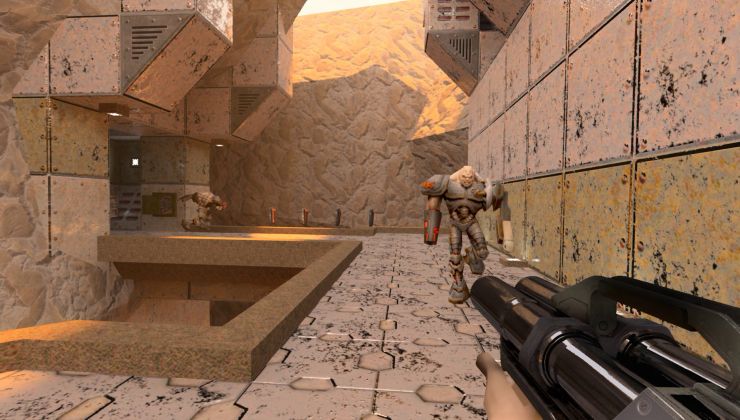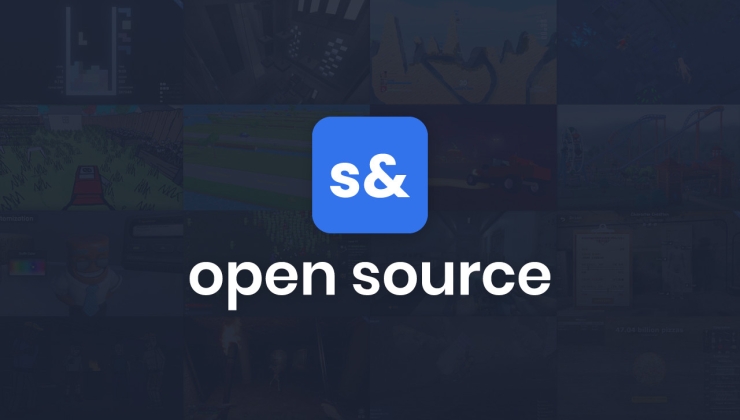The Solus distribution [Official Site] developers are a clever bunch, with their Linux Steam Integration [GitHub] software package and snaps, they are hoping to "relieve the pressure on distributions for supporting gaming".
When I say snaps, I'm talking the snap package system, specifically from version 2.28 onwards which supports something called "base" snaps. You can read more about the idea behind base snaps here.
Here's why they're doing it:
It's time to relieve the pressure on distributions for supporting gaming, by doing so through a single point of entry. A snapped LSI will ensure that the Steam/LSI combo would work identically on every distribution, *even if they don't support multilib*. It also ensures we can provide a "perfect" runtime, but ensure its up to date, optimised, and configured explicitly to support LSI & Steam.
If you're after an explanation in the most simple of terms, they have you covered:
TLDR: Single Steam/LSI image that takes all of the Solus gaming/Steam work, and provides it for everyone, on any distro.
They're also building a tool to debug the runtime, so they can ensure "ABI compatibility" with Steam and games themselves.
I certainly appreciate what they're doing, so it will be interesting to see what becomes of this. Perhaps in future this might help Valve directly with Steam, who knows what will happen.
On top of that, they recently released a new version of their Linux Steam Integration, which includes a new "vendor offender" mode, which can help games on open source drivers.
You can see the full post on G+ here. What do you think to this?
I wonder why Canonical always wants to have something special that is not used in nowhere else (See: Unity, Mir ...)
Last edited by Zlopez on 13 Oct 2017 at 1:34 pm UTC
Quoting: ZlopezAs far as I know the snap is only supported by Ubuntu, other distributions wants to use Flatpak.Many distributions support snap, including Fedora, Solus, etc. (Solus has full support for it.)
Quoting: ZlopezAnd the Flatpak package for Steam is already worked on [GitHub](https://github.com/endlessm/steam-flatpak)Yeah that still uses the Steam runtime and doesn't actually solve anything, it still suffers its own distro incompatibilities.
However, I do really like the idea of snap and flatpack, especially for proprietary stuff like Steam.
Quoting: ZlopezAs far as I know the snap is only supported by UbuntuThere are logos for quite a bunch of distros on the snap website: https://snapcraft.io/
How Steam and Steam games will work if there are not 32-bits libraries on the system ?
Quoting: BrisseI've tried a few programs as snaps on my Ubuntu install but none of them have worked and they take up ten times as much storage space as the equivalent deb package.Yeah unfortunately I don't think Snapd uses anything like ostree with Flatpak. Flatpak's can look large but thanks to the de-duplication of ostree binary data is shared between runtimes and apps.
I'm surprised at Solus doing this though as they seemed to initially be more in favour of Flatpak. Does anyone know if they have listed the technically reasons for why they have done this (UPDATE: Seems at least some of the reasoning is in the G+ post)? Maybe they are being practical and trying to push both options right now and see which one holds up under actual trial of fire? I recall earlier in the year they were aiming to get Steam going in Flatpak but as Endless seems to have beat them to the punch did they think let's see how Snapd fairs?
Quoting: ikeyI'm quite sure Fedora does not "support" snapd. And my past test failed at running Snap on any non-ubuntu based distro where Flatpak has worked flawlessly for me (including Ubuntu)Quoting: ZlopezAs far as I know the snap is only supported by Ubuntu, other distributions wants to use Flatpak.Many distributions support snap, including Fedora, Solus, etc. (Solus has full support for it.)
Last edited by MagicMyth on 13 Oct 2017 at 2:57 pm UTC
Quoting: ikeyIkey Doherty? Is that you? For those who don't know he's the founder of Solus!Quoting: ZlopezAs far as I know the snap is only supported by Ubuntu, other distributions wants to use Flatpak.Many distributions support snap, including Fedora, Solus, etc. (Solus has full support for it.)
Quoting: ZlopezAnd the Flatpak package for Steam is already worked on [GitHub](https://github.com/endlessm/steam-flatpak)Yeah that still uses the Steam runtime and doesn't actually solve anything, it still suffers its own distro incompatibilities.
Quoting: berillionsWith snap Steam, it's possible to install a full 64-bits system ?Every application you install as a snap will come with it's own set of libraries. That's why it takes up more disk space. It's also why you won't need 32-bit shared system libraries. A snap application runs in a sandboxed environment, so it doesn't have access to the system libraries anyway. Good security feature, since it hinders malicious apps from tampering with your system.
How Steam and Steam games will work if there are not 32-bits libraries on the system ?
That's how I understand it anyway. I'm no expert though so I could be wrong.
Quoting: ZlopezAnd the Flatpak package for Steam is already worked on [GitHub](https://github.com/endlessm/steam-flatpak)There's actually a Steam package available from [flathub](https://github.com/flathub/com.valvesoftware.Steam) as well, been using that myself since it appeared.
I'm still interested to hear about what Valve were planning when they talked about using something alike Flatpak for their own package handling on Linux.
The performance in game can be increase ?
Quoting: berillionsWhat is the difference between Steam Snap and Steam native (runtime disabled) ?Improved performance? No. Snap does however run apps in a sandboxed environment, so snap would be more secure than running steam-native.
The performance in game can be increase ?
Quoting: PublicNuisanceBeen using Solus for my main system for a week or so now. Liking it so far.Absolutely a distro to watch. I think they've said they want to tackle dedicated GPU/Intel dynamic switching at some point, which would be quite awesome...
If it works like Docker, then you don't have to worry about space as much as you'd think. Images are in chunks and they share data (deduplication). So, if you have 20 games that rely on 50% the same base data, you will be saving 50% x 20 images.
That said, there is a little disk price to pay with containers. It is worth it a lot of times. Want to make your own Wordpress website on your own server with ease? Load up a Docker container for the site and another container for the DB and you are done in minutes.
Quoting: ZlopezAs far as I know the snap is only supported by Ubuntu, other distributions wants to use Flatpak. And the Flatpak package for Steam is already worked on [GitHub](https://github.com/endlessm/steam-flatpak)The rpm family don't contribute to the development, but they do put effort into snap compatibility. Debian family is far more extensive, so they have equal footing on "neutral territory" (e.g. Arch or Gentoo).
I wonder why Canonical always wants to have something special that is not used in nowhere else (See: Unity, Mir ...)It's natural.
If you have a piece of software, you like the idea, but want to make a few tweaks - go for it. You could ask in the same way, why do different distributions have different package managers. Arch wouldn't be arch if it ran on rpm or deb, which is why it has pacman. Gentoo has need for clever update scheduling, so it has emerge.
Snaps serve to replace two features of the rpm family - flatpak (for desktop app distribution) and Atomic updates (for rigid system management). SSo it makes sense to fork and create something.
Not to mention Snap and Flatpak are only two of about ten "universal" package formats.
But I get why you ask. The two distro families have different strategies:
Red Hat makes sure everyone in the Linux world uses their software, even if it isn't that great (e.g. Gnome).
Canonical, makes sure as few distros as possible can support their work, even if there's no need to couple their code so tightly.
As a result, Unity, runs almost exclusively on Ubuntu, and Gnome Shell runs on everything else, so we get the feeling that the latter is better. In reality, Unity is a great DE, it just happens to be tied to Ubuntu. Which is why Canonical were alone in developing it, went all in, and eventually killed the project off.
If Canonical were a little more giving, and Red Hat were more reserved, we'd have a much more balanced ecosystem.
Quoting: GuestI don't get why i should be excited about this, seems like all these flatpaks/whatever other name this runs on increase complexity and solve nothing, if i wanted paranoid level security i believe cubes os does a far better job at isolation. Based on what i read about these so far, i don't get why the status quo is so bad.This has very little to do with security, although the way security critical libraries are vendored with games, its not a point to ignore. This is more about providing a complete runtime, instead of a mixed runtime, to ensure all games work properly.














 How to setup OpenMW for modern Morrowind on Linux / SteamOS and Steam Deck
How to setup OpenMW for modern Morrowind on Linux / SteamOS and Steam Deck How to install Hollow Knight: Silksong mods on Linux, SteamOS and Steam Deck
How to install Hollow Knight: Silksong mods on Linux, SteamOS and Steam Deck